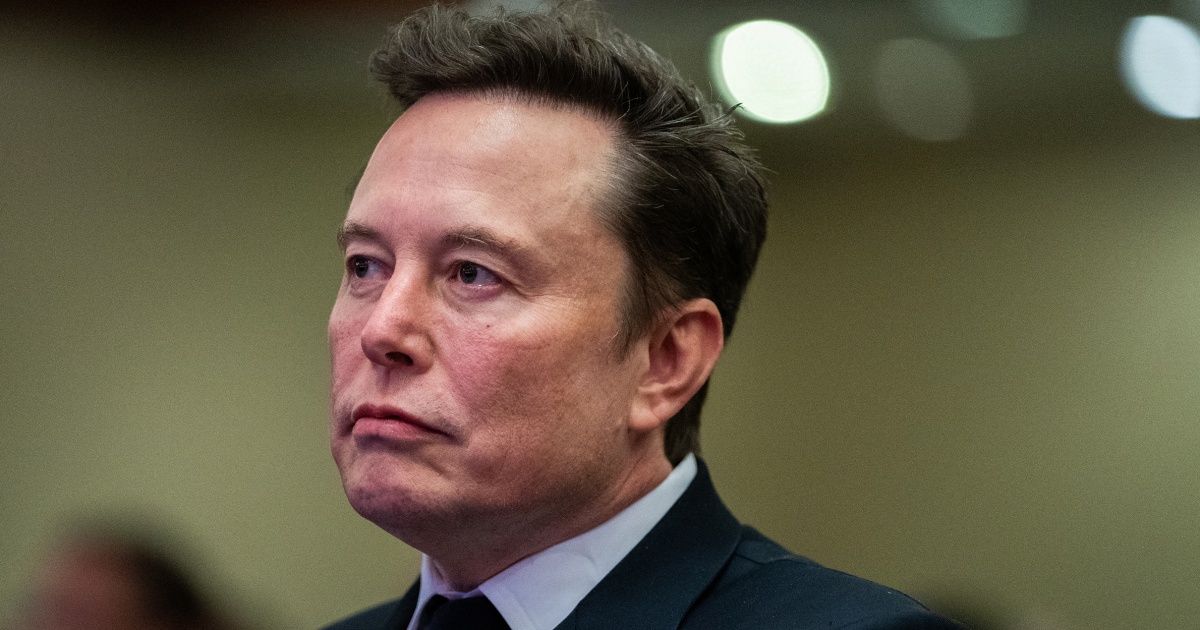Tesla announced Thursday that shareholders had voted to approve the biggest pay package in history for CEO Elon Musk, in a deal worth up to $1 trillion over 10 years if the company meets a list of benchmarks such as selling 1 million humanoid robots.
Over 75% of shareholders voted in favor of the pay package, said Brandon Ehrhart, the company’s general counsel, as Tesla shareholders gathered in person and virtually for their annual meeting.
Musk is already the world’s wealthiest person, with a net worth of about $473 billion, according to the Bloomberg Billionaires Index. The compensation agreement could help to make him the world’s first member of the “Four Comma Club” with $1 trillion or more in riches.
Musk’s wealth has risen this year despite serious damage to Tesla’s brand among politically left-leaning consumers caused by his embrace of right-wing politics around the world and his work in the Department of Government Efficiency in the Trump administration. In the first half of the year, Tesla suffered from falling revenue as anti-Musk protesters picketed Tesla showrooms to denounce his role in slashing foreign aid and other government spending.
Now, Musk is trying to turn around the company’s fortunes by focusing on developing robots that could one day work as household servants and by deploying robotaxis that could potentially drive without people in control. Neither is a reality yet: Tesla isn’t taking orders for droids, and its robotaxi prototypes still have employees in the vehicles for safety.
In recent weeks, Musk’s fan base — which ranges from small retail shareholders to some prominent Silicon Valley investors — has been vocal on his social media app X in favor of the pay package, arguing that he gets nothing unless he makes the company more valuable.
On a website urging “yes” votes, Tesla’s investor relations department said the pay package was “designed to keep Elon’s time, energy and considerable talents focused on Tesla for years to come and create jaw-dropping value for our shareholders.”
Musk would need to remain Tesla CEO for 7½ years in order to vest in any shares from the new pay package, according to the agreement’s terms, although he may continue in his other CEO roles at rocket company SpaceX and artificial intelligence startup xAI.
The proposal resulted in some opposition, including from Norway’s sovereign wealth fund, which noted that Musk’s new shares would dilute existing shares.
“While we appreciate the significant value created under Mr. Musk’s visionary role, we are concerned about the total size of the award, dilution, and lack of mitigation of key person risk- consistent with our views on executive compensation,” the fund’s manager, Norges Bank Investment Management, said in a statement.
The pay package was expected to be approved, with odds of passage at 93% on the betting website Polymarket on Wednesday.
Musk has said that the pay package is more about him maintaining control over Tesla and its products than about riches.
“If I go ahead and build this enormous robot army, can I just be ousted at some point in the future? That’s my biggest concern,” he said last month in a webcast with Wall Street analysts.
“I don’t feel comfortable building that robot army if I don’t have at least a strong influence,” he said.
Musk is Tesla’s largest shareholder, and because the pay package involves the granting of further shares, he could consolidate influence. The package would give him shares worth up to 12% of the company if Tesla’s market capitalization rises to at least $8.5 trillion and it meets 12 operational milestones.
The milestones Tesla would have to meet are: 20 million Tesla vehicles delivered; 10 million active subscriptions for the add-on driver-assistance service known as Full Self-Driving; 1 million bots delivered; 1 million robotaxis in commercial operation; and eight separate milestones for profitability.
Tesla reported 1.79 million vehicle deliveries in 2024, a drop from 1.81 million deliveries in 2023.
For Musk to get the full 12% of the company, the agreement also requires him to “develop a framework” for the eventual succession of a new Tesla CEO, but it does not set out any timeline for Musk, 54, leaving the CEO role.
The new shares for Musk would be on top of his current shares, which give him an 18% voting stake in Tesla. Those shares, though, include his reward from a 2018 pay package that is still in dispute in a lawsuit pending before the Delaware Supreme Court after some shareholders objected.
Tesla said that Musk and his brother, fellow board member Kimbal Musk, recused themselves from the board vote to put the pay package in front of shareholders.
This is a developing story. Please check back for updates.

